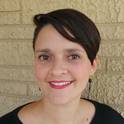At our institution, we offer two master’s degrees for in-service teachers: A Master of Arts in Elementary Education with a Math/Science Emphasis and a Master of Science in Middle Grades STEM Education. These degrees are designed for practicing teachers in any STEM-related field. Our goal is to empower these teachers by enhancing their skills in all aspects of STEM education, including content and pedagogy. As we began a process of evaluating and revising these programs, we realized there was no single body of standards to guide the work of STEM educators such as ourselves, nor was there sufficient focus on educating STEM students in an urban, culturally diverse district. Drawing on existing resources, research, and disciplinespecific standards, we developed and present here STEM Education Standards for teacher education programs and other educational groups that would benefit from them. In this paper, we describe the programs in-depth to provide background information. Next, we describe the process of creating the standards, the reasons for the standards we chose, and how we assess them. We also provide our final version of the standards. Finally, we share student reflection data regarding the effectiveness of the programs in which the STEM Education (STEM-E) Standards were piloted.
Article
Improving STEM Education Programs through the Development of STEM Education Standards
USF St. Petersburg campus Faculty Publications
Document Type
Article
Publication Date
2019
Disciplines
Abstract
Creative Commons License
Creative Commons Attribution-Noncommercial-No Derivative Works 4.0
Citation Information
Rosengrant, D., Hensberry, K. K., Vernon-Jackson, S., & Gibson-Dee, K. (2019). Improving STEM Education Programs through the Development of STEM Education Standards. Journal of Mathematics Education, 12(1), 123-140. doi.org/10.26711/007577152790042
